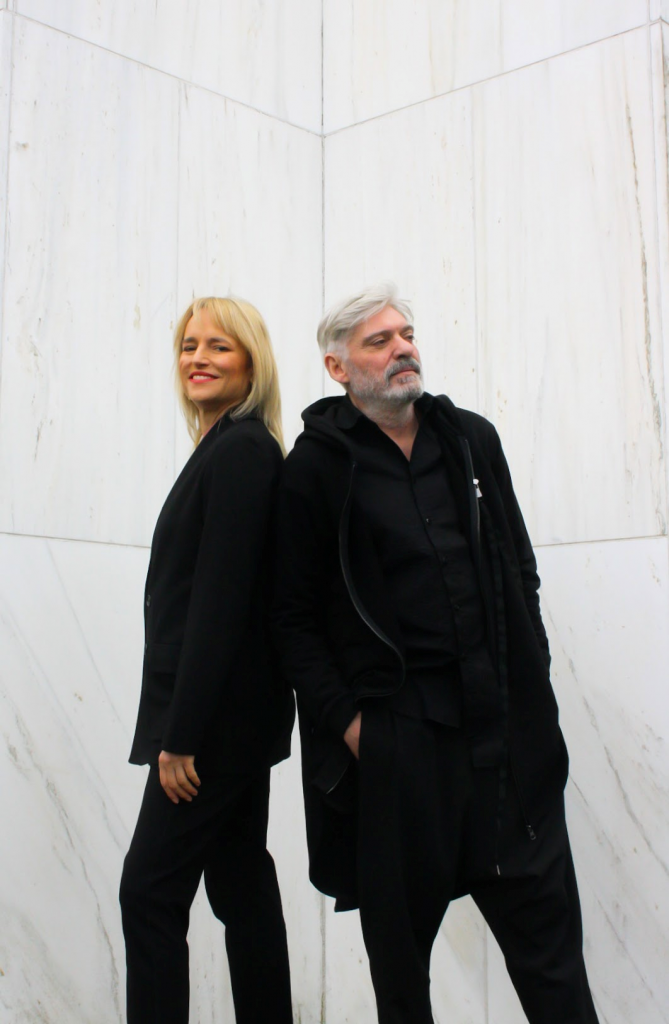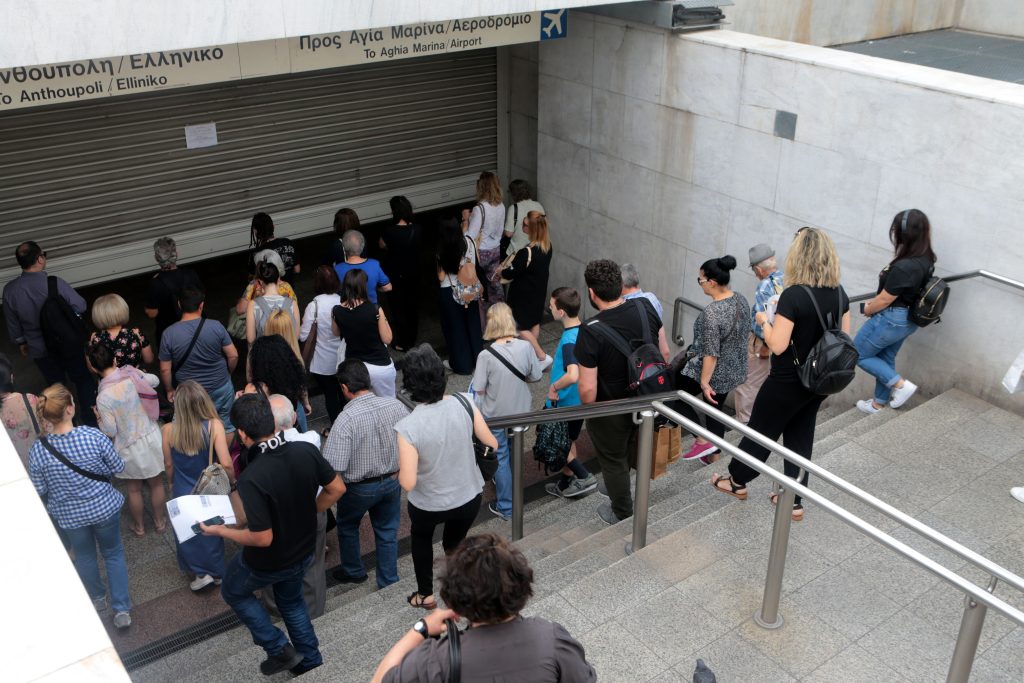BROOKLINE, MA – On March 23, 2024, the first Greek slow fashion show “Boston VIP Fashion Show” took place at the Maliotis Cultural Center, featuring 12 models, 27 outfits, and 300 guests. The event was organized by Anna Amoiradaki, founder of Khiton Events. Among the selected Greek designers were Konstantinos Tsigaros (K7 Konstantinos Tsigaros) and Orsalia Partheni (Parthenis).
The Boston VIP Fashion Show aimed to establish a bridge between the Greeks of Boston and Greek sustainable fashion, strengthening the sense of community and promoting the idea of ethical, sustainable, and slow fashion. “The reality of the fashion industry is concerning, with millions of children working in fast fashion and issues regarding compliance with labor standards and fair trade,” stated Amoiradaki, ambassador of the Hellenic Fashion Designers Association in the U.S. and stalwart advocate for ethical fashion through Khiton Events. “Every choice we make as consumers has consequences, and supporting fair and sustainable fashion can lead to a better and fairer fashion industry for all,” Amoiradaki added.
Maliotis Cultural Center, which hosted the fashion show, works as a center for the promotion and awareness of Hellenic culture. The fashion show commenced with an introduction by Anna Amoiradaki. The first part of the event showcased Parthenis’ collection, while an intermission allowed for greetings from the Maliotis Cultural Center representatives, Chrysoula Kourkounti, Executive Director, Markella Patitsas, Director and Marilena Gropatsakis, Event Manager.
The second part of the event showcased Tsigaros’ collection, with an opening act by opera singer Kassandra Dimopoulou. Following the conclusion of the fashion show, guests indulged in light bites and refreshments in the Maliotis Hall, where they also had the opportunity to purchase garments from the collections during the trunk show.

From left to right: Markella Patitsas, Orsalia Partheni, Chrysoula Kourkounti, Konstantinos Tsigaros, and Anna Amoiradaki, photo by: Nikos Lazouras
The fashion label “Parthenis” was established by Orsalia Partheni’s father, Dimitris Partnenis in the 1970s. Today the Parthenis look remains timeless and simple with a unisex easy-living feel and a pure elegant Greek aesthetic. Through the “Earthbound” collection (Spring-Summer 2024) presented at the Boston VIP Fashion Show, Parthenis maintained its Greek identity, redefining the Greek character with a modern approach. Drawing inspiration from the serene beauty of nature and the essence of human connection, this collection encapsulates a harmonious blend of style, comfort, and sustainability.
Parthenis produces ethical fashion in collections for both winter and summer. However, the summer collections are always richer and more relevant to the Greek climate. “Nowadays, consumers have started to show greater awareness, preferring locally produced products and considering environmental factors,” Partheni stated.
Konstantinos Tsigaros’ atelier was established a few years ago in Thessaloniki, Greece. The collection “K7”, “K” for Konstantinos, and “7” as an abbreviation of 24/7, presented at the Boston VIP Fashion Show, was named after the seven pieces for seven days of the week, wearable from morning to night. K7 collection is long-lasting, promoting the value of sustainable and slow fashion while emphasizing the importance of careful material selection. The colors of the garments are mainly gray, black, and white. “K7 collection has experienced significant commercial success in a short period,” said Tsigaros. The collection is currently available in Greece, Spain, and Panama.
“I produce only the amount of clothing pieces that will be worn and I know they will sell; I do not engage in mass production,” Tsigaros stated. Unlike slow fashion, fast fashion clothes are produced in mass, under poor conditions. Fast fashion is an expensive choice for the consumer as the clothes are used for a very short period, not recycled, and harmful to both the planet and the consumer. Tsigaros also highlights the importance of careful material selection and processing. “The polyester or cotton we use for our clothes are from recyclable or reused materials. The K7 garments do not have metal finishes such as zippers or buttons because they cannot be recycled,” explained Tsigaros.
The hands that produce slow-fashion clothes operate under supreme working conditions. The materials used for the creations featured at the Boston VIP Fashion Show are cruelty-free, sustainable, and eco-friendly without GMOs (Genetically Modified Organisms). “More than 80% of European cotton is produced in Greece, which under the current legislation is required to be GMO-free,” Partheni highlighted.
In Greece, despite the quality of raw materials, designers face challenges in the field of textile production. “For a garment to carry the EU-certified cotton label, the entire production line must occur within Europe. This creates difficulties for designers, as the textile industry, especially in Greece has experienced a significant decline,” Partheni said.
Currently, a large proportion of the fabrics used by designers are primarily produced in Turkey. However, Turkey is not part of the European Union, and thus the garments cannot carry the EU-certified cotton label. Greece has the potential to revive the textile industry by developing yarn and fabric production facilities. “Ideally, the best option for us is to leverage Greek raw materials. As of now, the fabric may not always be Greek, and this needs to change,” added Tsigaros.
The Boston VIP Fashion Show emerged as a significant promotion of thoughtful thinking and practice in the industry. As fashion evolves, these events pave the way for a more sustainable and responsible future, inspiring designers and consumers to prioritize ethics alongside style.








